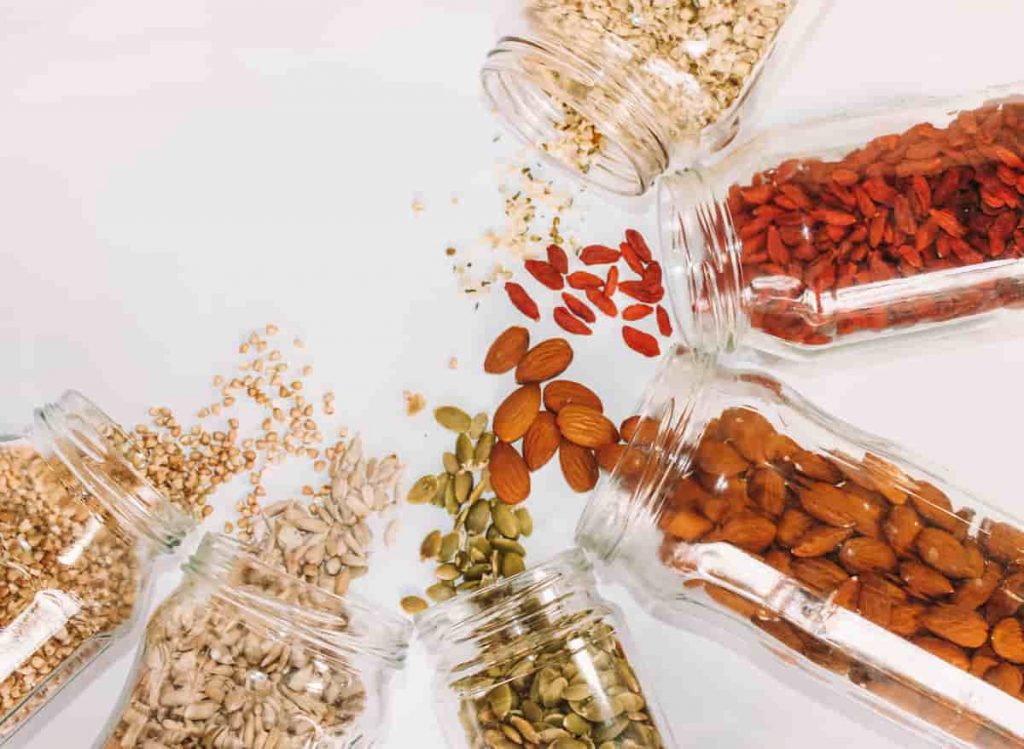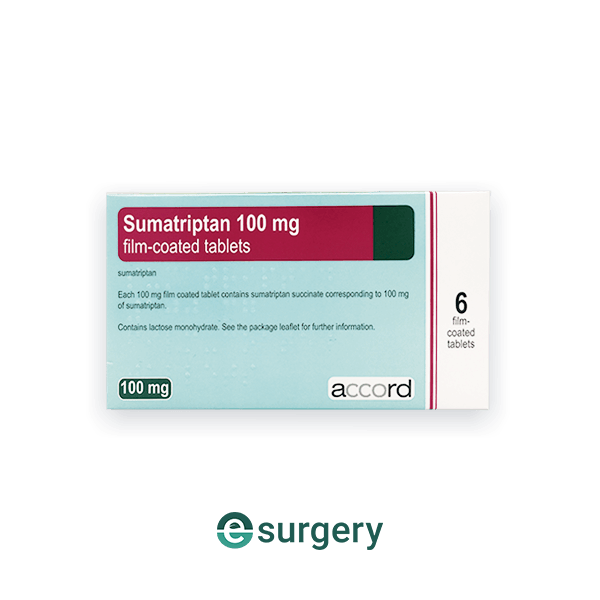
Migraines are more than just your standard headache. They can be painful, nauseating, visually disruptive and in the worst cases, disabling. Unsurprisingly, sufferers try to avoid ‘triggers’ – things which increase the likelihood of experiencing a migraine. The problem is that identifying triggers isn’t so simple, and a large variety of stimuli can contribute to these severe headaches.
Examples of possible triggers include:
- Hormonal changes, such as menstruation.
- Emotional states, such as stress and anxiety.
- Physical influences, such as fatigue, body tension and hypoglycaemia.
- Environmental conditions, such as bright lights, flickering screens and smoke.
A lot of people keep migraine journals, in which they note the frequency and severity of their attacks in relation to possible triggers [1]. Journals like these allow migraine sufferers to take preventative measures, reducing the chances of an unforeseen attack. Increasingly, people are discovering a common factor in their migraine condition – their diet.
How Can Your Diet Trigger Migraines?
The science isn’t certain about the relationship between triggers and migraines. It’s likely that genetics play a significant role in the condition, and that the widening of blood vessels in the brain could be a cause. However, it’s difficult to say why a flickering screen sets off migraines in some people and not others, and accounting for such a wide range of possible triggers is no simple task.

However, we do know that many people report food and drink as migraine triggers. Studies show that missing a meal could induce migraine in up to 40% of subjects, with food and alcohol related triggers contributing to attacks in 26.9% and 37.8% of sufferers, respectively. [2] [3]
So, we might not know exactly how certain foods or drinks trigger migraines – but we’re pretty sure they can. Thankfully, we also know some of the most commonly reported dietary triggers. Could these be setting off your attacks?
Coffee As A Migraine Trigger
There are many reasons people drink coffee. In addition to taste, one of the main reasons is the amount of caffeine present in the beverage. Caffeine is a stimulant, and many rely on the drink to get them up in the morning. The problem with such a caffeine reliance is that it can contribute to headaches, whether it is consumed via coffee, tea, fizzy or energy drinks [4]. One obvious solution is to cut out the caffeinated drinks, but then you run the risk of caffeine withdrawal headaches! So if you’re looking to break the habit, the recommended method is to monitor and gradually reduce your caffeine intake over the course of a couple weeks.
Alcohol As A Migraine Trigger
If caffeine is one of the most popular stimulants, alcohol is one of the most popular depressants. Headaches are well known to be a side effect of alcoholic drinks – anyone who has experienced a serious hangover can attest to that! For people who experience migraines, even small amounts of alcohol can induce symptoms. As we cited earlier, over a third of migraine sufferers may be sensitive to alcohol consumption. Red wine could be a culprit [5], with some pointing to the histamine content as a cause. There could be a wider correlation between people with dietary histamine intolerance and migraines [6]. As always, moderating alcohol intake is a good idea for your health, but might be particularly important for the migraine sensitive – watch the wine!

Nitrites As A Migraine Trigger
Nitrites are a group of preservatives that are used in certain kinds of food. There is some evidence to suggest that people with higher concentrations of nitrates in their body are more prone to migraines [7]. If this is the case, sufferers might do well to avoid foods that are high in nitrites. The most common type of food to contain these preservatives are processed meats such as bacon, sausages, ham, and salami. Certain cured meats may also contain histamine, another potential trigger as discussed in the last paragraph. Now this doesn’t mean you need to go vegan! But removing these particular animal products from your diet could do some good, at least in regard to migraine frequency.
Tyramine As A Migraine Trigger
Here’s another dietary factor that people may not be thinking about. Tyramine is a compound that tends to be found in foods that are cured, fermented, spoiled or aged. This includes the cured meats discussed under the nitrates section, but in addition tyramine is commonly found in:
- Yeast extracts
- Pickled and smoked fish
- Aged cheeses such as stilton or cheddar
- Picked products such as sauerkraut
Levels of tyramine tend to rise in food that is stored at room temperature, compared to refrigerated or frozen food. For some people, too much tyramine in their diet is associated with chronic migraine conditions[8]. This might be one of the reasons that aged cheeses tend to be a common dietary trigger.

Can Your Diet Prevent Migraines?
We’ve seen how certain chemicals found in our diets can cause or exacerbate migraine attacks. But is there anything we can eat or drink that actually has a preventative effect on the condition?
Magnesium is an element essential for cellular processes, and studies suggest that magnesium deficiency is prevalent in migraine sufferers[9]. Magnesium rich foods include green leafy vegetables such as spinach and kale, nuts, seeds and beans.

Coenzyme Q10 is vital for protein production and muscle health, and it could help reduce episodic migraines[10]. Good sources of Q10 include whole grain foods, organ meats such as liver, and oily fish like salmon.
Studies indicate that doses of Riboflavin (also known as Vitamin B2) could reduce the frequency of headaches[11]. Riboflavin can be obtained from animal sources such as eggs and yogurt, and from non-animal sources including fortified cereals and mushrooms.
Try adding some of the foods mentioned here into your regular diet and see if it makes any difference to your headaches. Structure could be key – generally speaking, a consistent meal plan without skipping or fasting tends to reduce triggers for migraine sufferers.
Is There Medication Available For Migraines?
Dietary changes and home remedies can be useful, but sometimes they just aren’t enough. When it comes down to it, medication is the most consistent form of migraine treatment.
Triptan medicines are often prescribed to migraine sufferers. It’s believed that Triptans treat migraines by reducing the widening of blood vessels of the brain, essentially countering the process that leads to headaches. They aren’t preventatives, but when taken at the start of an attack Triptans can greatly reduce the duration and intensity of a migraine.
Triptan medications include Sumatriptan tablets, Zolmitriptan, Rizatriptan (also branded as Maxalt Tablets or Maxalt Melt).

An alternative type of medication is also prescribed for migraines – the beta-blocker Propranolol, which can reduce the severity and frequency of headaches.
Can I Order My Migraine Medication Online?
Absolutely. A variety of migraine treatments are now available for prescription from registered online pharmacies such as e-Surgery, with Sumatriptan tablets ready to order from just £9.95.
Sources
1. Migraine Prevention – Identifying And Avoiding Triggers | NHS Conditions
2. Precipitating Factors In Migraine: A Retrospective Review Of 494 Patients | PubMed
3. The Triggers Or Precipitants Of The Acute Migraine Attack | PubMed
4. Caffeine-induced Headache In Children And Adolescents | PubMed
5. Red Wine As A Cause Of Migraine | PubMed
6. Low Serum Diamine Oxidase (DAO) Activity Levels In Patients With Migraine | PubMed
8. The Role Of Tyrosine Metabolism In The Pathogenesis Of Chronic Migraine | PubMed
9. Why All Migraine Patients Should Be Treated With Magnesium | PubMed
10. Open Label Trial Of Coenzyme Q10 As A Migraine Preventive | PubMed
11. High-dose Riboflavin Treatment Is Efficacious In Migraine Prophylaxis: An Open Study In A Tertiary Care Centre | PubMed
Further Reading
1. Food and diet with migraines | Migraine trust
2. Migraine | NHS
3. Facts about triptans | National Headache Foundation








